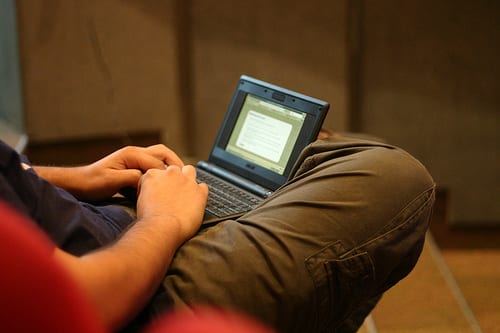As always, I think it is good practice to share what I am doing. Here are two ‘expressions of interest’ we made today for the HEA’s Small Education for Sustainable Development Interdisciplinary Grants.
UPDATE: Neither submissions were accepted. We were told that #1 was ‘not deemed transferable enough’ and that #2 was ‘not pedagogical enough’.
1. We scream. In and against the notion of sustainability
In the beginning is the scream. We scream. … This is our starting point: rejection of a world that we feel to be wrong, negation of a world we feel to be negative. This is what we must cling to. (Holloway, 2002)
We propose to develop a course module that attempts to articulate Holloway’s notion of ‘the scream’ in student-academics and develop both a theoretical and practical framework for negativity that recognizes the unsustainability of our lives and leads to a negation of unsustainability that informs direct action. The proposed module would be research-engaged, scaffolded by the ‘pedagogy of excess’ (Neary & Hagyard 2010).
The pedagogy of excess involves a critique not only of the politics of consumption but the politics of production whereby student-academics recognize that the principle of capitalist excess is not adequate for the sustainability of human life. Informed by the history of struggle inside and outside of the academy, students as producers move beyond their anticipated experience of university education, exceeding their expectations about the potentials and possibilities of student life. (Neary & Winn 2009)
A curriculum for a pedagogy of excess engages participants with multiple critical discourses across disciplines and proposes research projects that, for example, establish new indices of well-being beyond monetary measures; new capacities for democratic planning afforded by technology and systems of allocation outside of wage-labour, which enrich a critical, political economy with ecological knowledge adequate to the scope of what a progressive and sustainable humanity might become (Dyer-Witheford 2005, 90-91).
(249 words)
References:
Dyer-Witheford, N. (2005) Cognitive Capitalism and the Contested Campus, European Journal of Higher Arts Education, 2.
Holloway, John (2002) Change the World Without Taking Power: The Meaning of Revolution Today. London, Pluto Press
Neary, Mike and Winn, Joss (2009) The student as producer: reinventing the student experience in higher education. In: The future of higher education: policy, pedagogy and the student experience. London, Continuum, pp. 192-210.
Neary, Mike and Hagyard, Andy (In Press, 2010) Pedagogy of Excess: an alternative political economy of student life. In: The Marketisation of Higher Education: The Student as Consumer. Eds. Mike Molesworth, Lizzie Nixon, Richard Scullion. London, Routledge
Contacts:
Joss Winn, Mike Neary (NTF), Richard Hall (NTF)
2. The student as producer and the development of a ‘mass intellectuality in commons’
In an environment where knowledge is free, the roles of the educator and the institution necessarily change. The educator is no longer a delivery vehicle and the institution becomes a landscape for the production and construction of a mass intellect in commons. (Neary and Winn, 2009)
This project asks, “How can we live in and against an unsustainable world? How can student-academics act against that which they know is not sustainable?”
We propose that universities and the nature of academic work are ecologically unsustainable and that a critique of the social relations of capitalist production is central to understanding the notion of ‘sustainability’ and living sustainably. This project will propose methods and tools for remodeling the idea of a student, from consumer to producer, undermining the organising principle, (i.e. private property and wage labour), through which academic knowledge is currently being produced.
An exemplar alternative organising principle is already proliferating in universities in the form of open, networked collaborative initiatives, which at their most radical, attempt to ensure the free and creative use of research materials. Initiatives such as Open Access are attempts by academics and others to lever the Internet to ensure that research output is free to use, re-use and distribute without legal, social or technological restriction.
By participating in such subversive movements, the student-academic becomes a critical, socially and environmentally active individual, who works against the “systematic conversion of intellectual activity into intellectual capital and, hence, intellectual property” (Noble 1998), acting within yet against an unsustainable world.
(250 words)
References:
Neary, Mike and Winn, Joss (2009) The student as producer: reinventing the student experience in higher education. In: The future of higher education: policy, pedagogy and the student experience. Continuum, London, pp. 192-210. ISBN 1847064728
Noble, David F. (1998) Digital diploma mills: The automation of higher education. First Monday [Online], Volume 3 Number 1 (5 January 1998)
Contacts:
Joss Winn, Mike Neary (NTF), Richard Hall (NTF)



